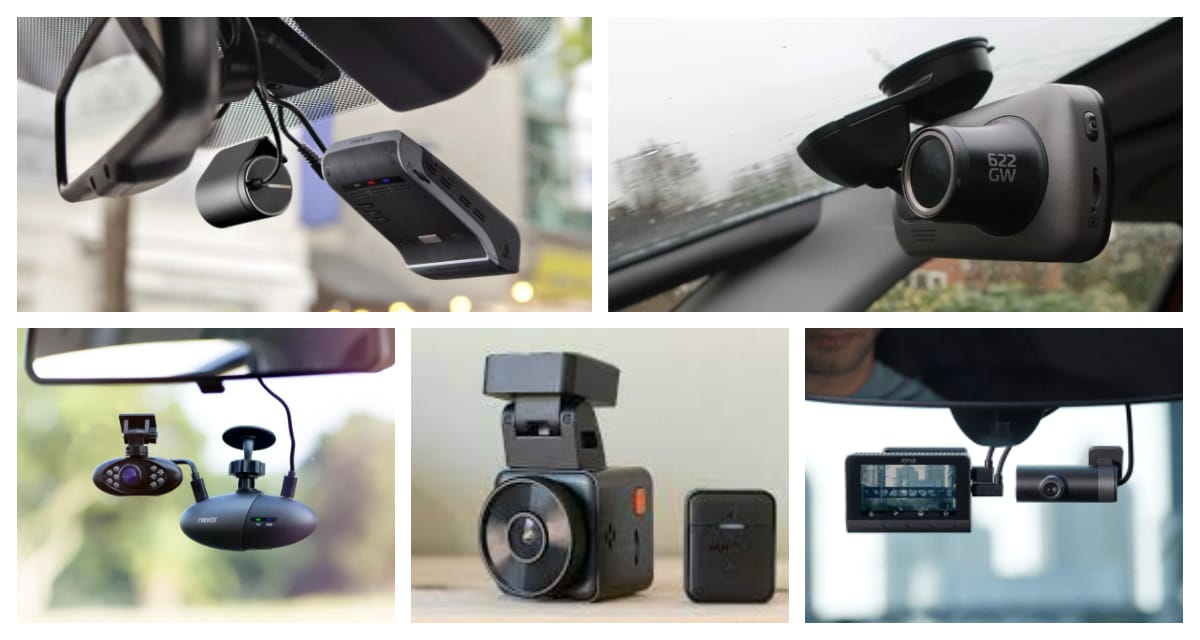Dash cams, or dashboard cameras, are increasingly popular devices that record video and (sometimes) audio footage while you drive. They can offer numerous benefits, but their use raises potential privacy and safety concerns. Massachusetts is one of many states with specific regulations for dashboard cameras. It’s essential to understand these rules if you’re considering installing one in your vehicle.
Benefits of Dash Cams
- Capturing Evidence: In the event of an accident, dash cam footage can provide invaluable documentation of the events leading up to and during the incident. This can help determine fault and protect you from false claims.
- Deterring Dangerous Driving: The presence of a dash cam might encourage other drivers to behave more cautiously, potentially reducing the risks of accidents.
- Monitoring Driving Habits: You can use dash cams with GPS or other features to review your own driving patterns, identify areas for improvement, and potentially qualify for insurance discounts.
- Documenting Road Trips and Scenic Vistas: Dash cams can capture breathtaking moments and memories during road trips, adding a visual element to your travel experiences.
Massachusetts Dash Cam Laws and Regulations
- Windshield Placement
Massachusetts law addresses the placement of objects on windshields to ensure drivers have a clear view of the road. Dash cams must adhere to the following guidelines:
* **Permitted Locations:** Dash cams can be mounted behind the rearview mirror or on the dashboard.
* **Restricted Areas:** Mounting a dash cam directly on the windshield is generally not allowed, as it can obstruct the driver’s view.
* **Side Window Placement:** You may be able to attach a dash cam to a side window, but it cannot reflect more than 35% of visible light. However, determining this reflectiveness on your own is difficult, and it’s wise to check with local law enforcement before relying on this option.
- Audio Recording Laws
Massachusetts is a “two-party consent” state for audio recordings. This means it’s illegal to record a conversation without the knowledge and consent of everyone involved. Implications for dash cam use:
- Recording Consent: If your dash cam captures audio, you must inform passengers or other drivers if their conversations are being recorded.
- Disabling Audio: To avoid potential legal complications, it may be simpler to disable the audio recording function on your dash cam.
- Using Dash Cams on Private Property
While Massachusetts dash cam laws focus primarily on public roads, be mindful of the potential for privacy concerns when using a dash cam on private property.
* **Permission:** Seek the property owner’s permission before using a dash cam on their property.
* **Surveillance Concerns:** Avoid aiming your dash cam at private residences or areas with a reasonable expectation of privacy.
Using Dash Cam Footage as Evidence
Dash cam footage can be admissible in Massachusetts court proceedings. Consider these factors:
- Relevance: The footage must be relevant to the case at hand.
- Authentication: You may need to establish the video’s authenticity, date, and time, and show that it hasn’t been altered.
- Chain of Custody: Document how the footage has been stored and handled to preserve its integrity.
- Consultation with an Attorney: An experienced attorney can help you navigate the legal complexities of introducing dash cam footage as evidence.
Additional Considerations
- Data Storage: Establish a plan for storing and managing your dash cam footage, especially if you plan to record continuously. Consider security measures to prevent unauthorized access.
- Employer Use: Businesses operating vehicles in Massachusetts must understand additional regulations and employee privacy rights if they use dash cams.
- Insurance Providers: Some insurance companies may offer discounts or incentives if you use a dash cam. Check with your provider.
FAQs
- Can I be penalized for having a dash cam in Massachusetts? While dash cams themselves are not illegal, mounting them in a way that violates windshield obstruction regulations could lead to citations.
- Does Massachusetts limit the size of dash cams? There are no specific size restrictions but dash cams should be mounted as unobtrusively as possible to avoid obstructing your view.
- Can I share my dash cam footage online? Be cautious of sharing footage that might identify other individuals or reveal private property, as this could raise privacy concerns.
- I drive commercially – are there different dash cam rules? Yes, companies using dash cams in commercial vehicles may need to create policies on their use and inform employees about potential monitoring.
Sources
- Massachusetts General Laws Chapter 90 Section 9D: This section addresses permissible objects on windshields. [https://malegislature.gov/Laws/GeneralLaws/PartI/TitleXIV/Chapter90/Section9D]
- Massachusetts General Laws Chapter 272 Section 99: This section covers the state’s wiretapping and audio recording laws. [https://malegislature.gov/Laws/GeneralLaws/PartIV/TitleI/Chapter272/Section99]
- BlackboxMyCar – Dash Cam Laws by State: [https://www.blackboxmycar.com/pages/are-dash-cams-legal-in-my-area-dash-cam-laws-in-every-us-state]
- DiBella Law Offices, P.C. – Using Dashcam Footage in Massachusetts Personal Injury Cases: [https://www.dibellalawoffice.com/blog/using-dashcam-footage-in-massachusetts-personal-injury-cases/]
Disclaimer: This article offers general information regarding dash cam regulations in Massachusetts. It should not be considered a substitute for professional legal advice. Always consult with an attorney or local law enforcement agencies with specific questions related to your circumstances.



